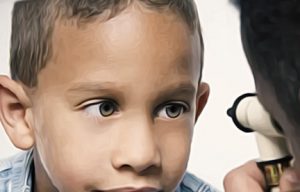 For my entire life thus far, I thought the whole purpose of optometrists was for them to test people’s eyes, determine if they need glasses, and then prescribe glasses or contact lenses. It turns out that there is a lot more to being an optometrist or optician. I never knew this until I had my son. As my son developed and entered schooling, we noticed a few issues and behavioural difficulties. Now let me clarify, my son isn’t misbehaved nor is he a naughty kid. Instead, there seemed to be a few concerns about how my son interprets what he sees.
For my entire life thus far, I thought the whole purpose of optometrists was for them to test people’s eyes, determine if they need glasses, and then prescribe glasses or contact lenses. It turns out that there is a lot more to being an optometrist or optician. I never knew this until I had my son. As my son developed and entered schooling, we noticed a few issues and behavioural difficulties. Now let me clarify, my son isn’t misbehaved nor is he a naughty kid. Instead, there seemed to be a few concerns about how my son interprets what he sees.
As a parent, it’s hard seeing my son struggle in school. School shouldn’t be a place that causes stress for a child. School should be fun and rewarding. His teacher has told me that she noticed that he seems to be easily distracted, and slightly disruptive.
We put my son on an observational plan to simply monitor his behaviour over a period of time. When we saw his behaviour wasn’t improving, the teacher recommended I take my son to a behavioural optometrist. I obliged, but it made me question, what is a behavioural optometrist? Does anyone know? I certainly had no idea. Later that evening I could not stop researching behavioural optometrists to understand what exactly they do.
Two days later, I took my son to his appointment. The optometrist was extremely thorough with my son’s tests and did a great job of helping me understand my son’s challenges. It turned out that he had a condition called ‘convergence insufficiency’. This essentially meant that his eyes struggled to work together to focus on near objects, making reading books and computer screens difficult. As these tasks were difficult for my son, he’d get easily distracted. The best Brighton-based optometrist prescribed my son with glasses and gave him some eye exercises for him to do at home each day. Within a few weeks, there was a huge improvement in my son’s behaviour in class. He was a lot more engaged and focused than he had ever been in the past.